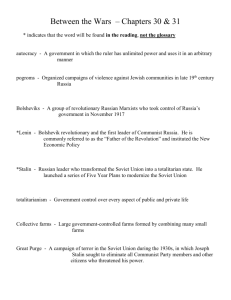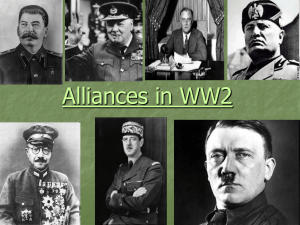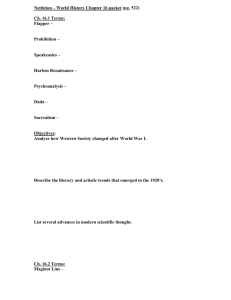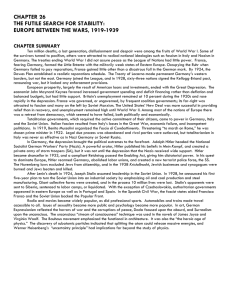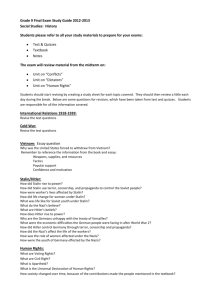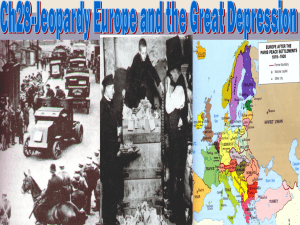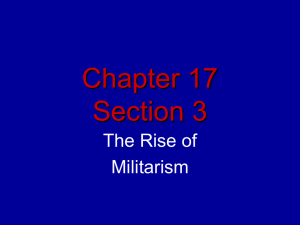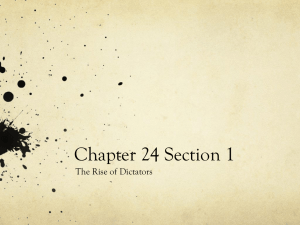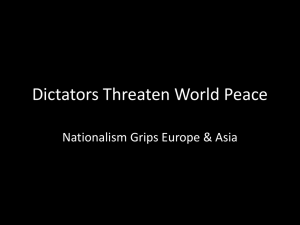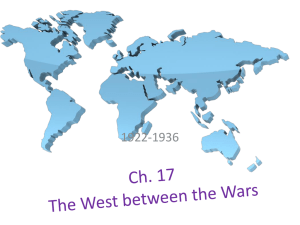THE DEPRESSION & TOTALITARIAN GOVERNMENTS STUDY
advertisement
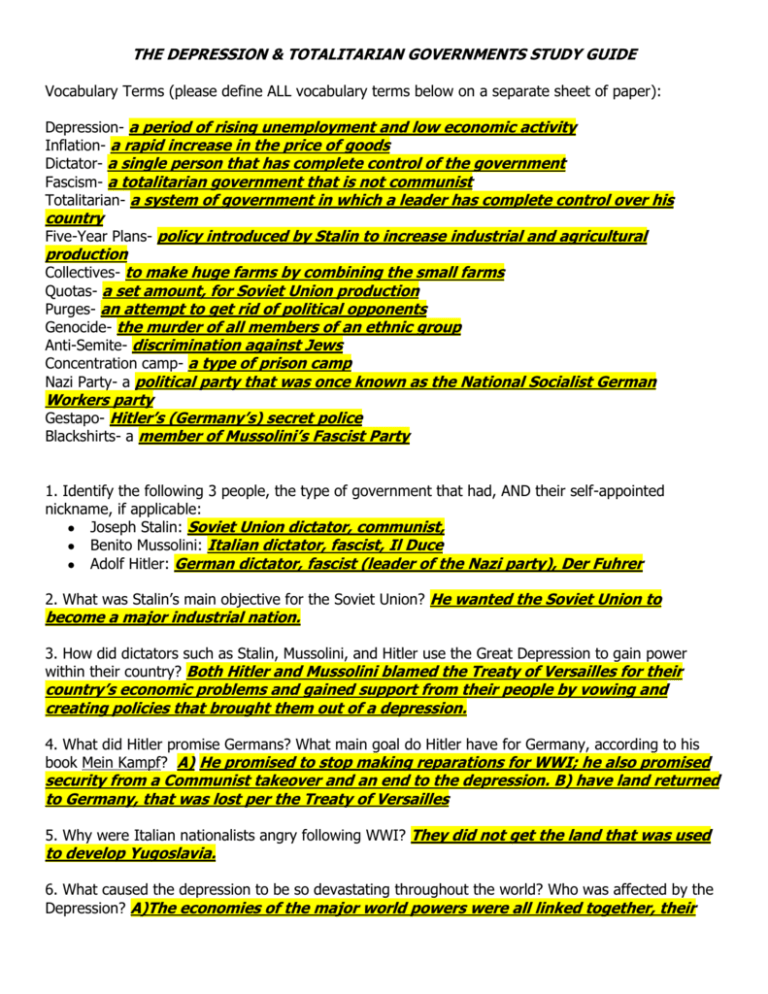
THE DEPRESSION & TOTALITARIAN GOVERNMENTS STUDY GUIDE Vocabulary Terms (please define ALL vocabulary terms below on a separate sheet of paper): Depression- a period of rising unemployment and low economic activity Inflation- a rapid increase in the price of goods Dictator- a single person that has complete control of the government Fascism- a totalitarian government that is not communist Totalitarian- a system of government in which a leader has complete control over his country Five-Year Plans- policy introduced by Stalin to increase industrial and agricultural production Collectives- to make huge farms by combining the small farms Quotas- a set amount, for Soviet Union production Purges- an attempt to get rid of political opponents Genocide- the murder of all members of an ethnic group Anti-Semite- discrimination against Jews Concentration camp- a type of prison camp Nazi Party- a political party that was once known as the National Socialist German Workers party Gestapo- Hitler’s (Germany’s) secret police Blackshirts- a member of Mussolini’s Fascist Party 1. Identify the following 3 people, the type of government that had, AND their self-appointed nickname, if applicable: Joseph Stalin: Soviet Union dictator, communist, Benito Mussolini: Italian dictator, fascist, Il Duce Adolf Hitler: German dictator, fascist (leader of the Nazi party), Der Fuhrer 2. What was Stalin’s main objective for the Soviet Union? He wanted the Soviet Union to become a major industrial nation. 3. How did dictators such as Stalin, Mussolini, and Hitler use the Great Depression to gain power within their country? Both Hitler and Mussolini blamed the Treaty of Versailles for their country’s economic problems and gained support from their people by vowing and creating policies that brought them out of a depression. 4. What did Hitler promise Germans? What main goal do Hitler have for Germany, according to his book Mein Kampf? A) He promised to stop making reparations for WWI; he also promised security from a Communist takeover and an end to the depression. B) have land returned to Germany, that was lost per the Treaty of Versailles 5. Why were Italian nationalists angry following WWI? They did not get the land that was used to develop Yugoslavia. 6. What caused the depression to be so devastating throughout the world? Who was affected by the Depression? A)The economies of the major world powers were all linked together, their economies affected one another: if one succeeded, they both did… if one failed, they both did. B) the entire world 7. List 6 common traits of totalitarian governments: 1) Extreme nationalism 2) Propaganda 3) Secret police 4) Censorship 5) Dictatorship 6) Lack of individual freedoms 8. Explain Stalin’s rise to power in the Soviet Union. After Vladimir Lenin’s death, Stalin took over the Bolsheviks, who then became known as the Communist party. 9. How did Stalin deal with his political opponents? Purges-he sent many of them to concentration camps in Siberia. 10. The US recovered quickly from the Depression compared to other nations. Why is this? FDR developed programs like the New Deal, that focused on relief and reform. 11. Germany, Japan, and Italy all invaded other nations, yet the League of Nations did nothing to stop them. What do you think this will ultimately lead to? WWII will begin as nations like Britain will declare war on Germany to stop their actions.
